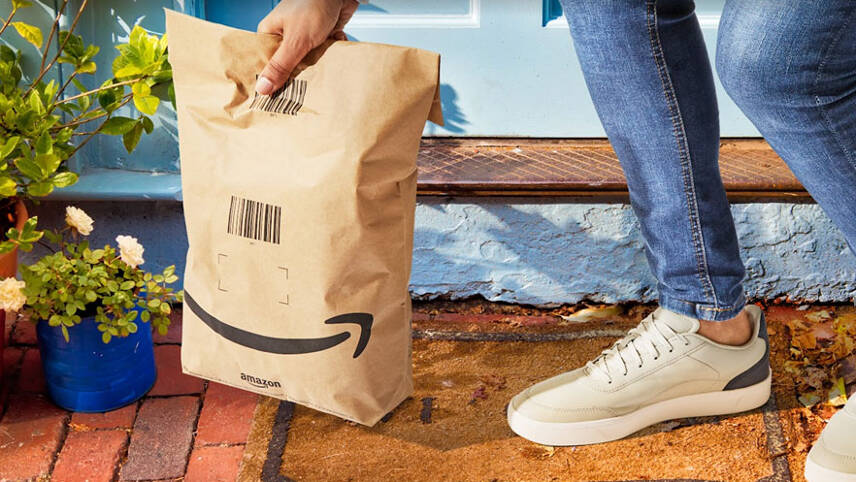Register for free and continue reading
Join our growing army of changemakers and get unlimited access to our premium content

Image: Amazon
The business announced on Thursday (16 November) that all deliveries will be backed in either a flexible paper bag, a cardboard envelope or a corrugated cardboard box. The three packaging options are being touted as easy to open and recyclable at home in all of Amazon’s European markets.
These changes will apply to orders shipped from Amazon’s own warehouses and also to those being sent via third parties through the Fulfilment by Amazon platform.
Amazon highlighted that these changes will not detract from its ongoing work to ship products in their boxes without any additional packaging. Over the past year, the number of products provided in ‘ship in container’ formats increased by 50%.
These changes, combined, mean that Amazon has mitigated the use of more than a billion single-use plastic delivery bags from its European distribution since 2018.
Amazon notably faced swift criticism after introducing Prime-branded plastic envelopes in the UK in 2019.
Flexible plastics like envelopes are not collected from homes in the UK for recycling. This is because, due to their lightweight nature, they are challenging to recycle economically and cannot be processed by traditional mechanical recycling methods.
Since 2019, most of the UK’s largest supermarkets have begun offering in-store collection points for flexible plastics in a bid to overcome this gap in capability from schemes operated by local authorities.
Driving efficiency
Amazon emphasised, in announcing packaging changes, its desire to use less packaging overall – regardless of the material.
The company is using machine learning solutions to assess product weight and size, thus determining which products are suitable for paper bags or cardboard envelopes instead of boxes. The solutions also ensure that oversized packaging is not used.
Over the past five years, these algorithms have reduced the use of cardboard boxes by some 35%. A paper bag can be up to 90% lighter than a box capable of holding similar-sized products.
PepsiCo progress
In related news, PepsiCo this month switched from plastic to paper packaging for porridge pots sold through the Quaker Oats brand in the UK.
The packaging format previously consisted of a plastic inner pot and an outer cardboard sheath. Both parts could be separated for recycling, but PepsiCo research found that many shoppers were not bothering to take the two packaging components apart.
Now, the porridge will be housed in a paper-only pot that can be rinsed and recycled in one piece. The change will reduce virgin plastic use for PepsiCo by up to 200 tonnes each year.


Please login or Register to leave a comment.